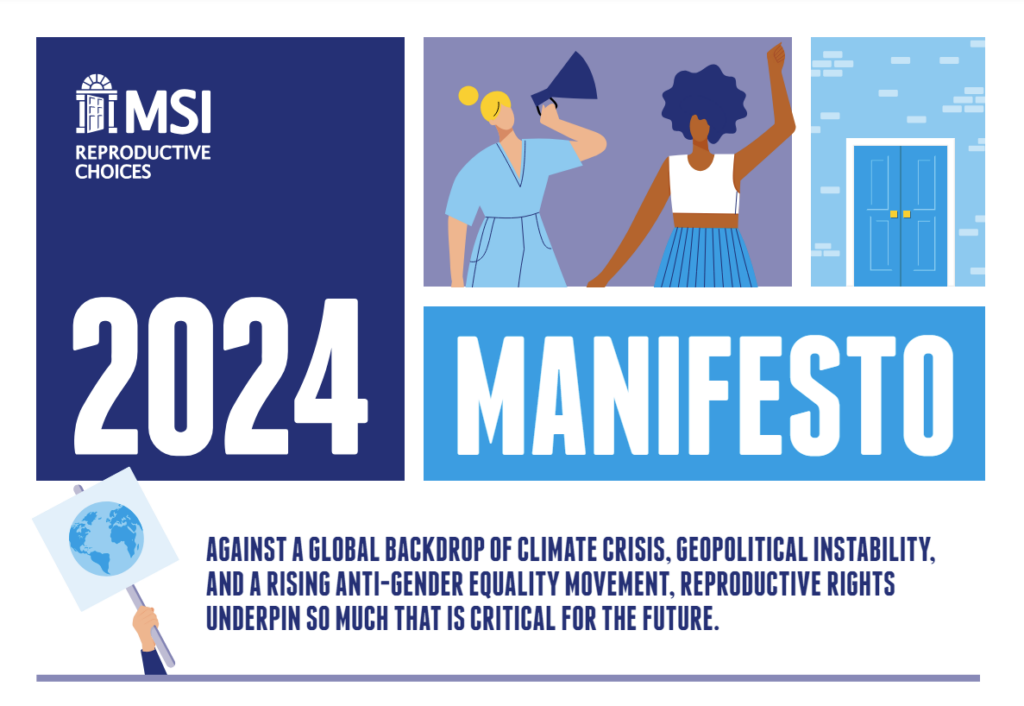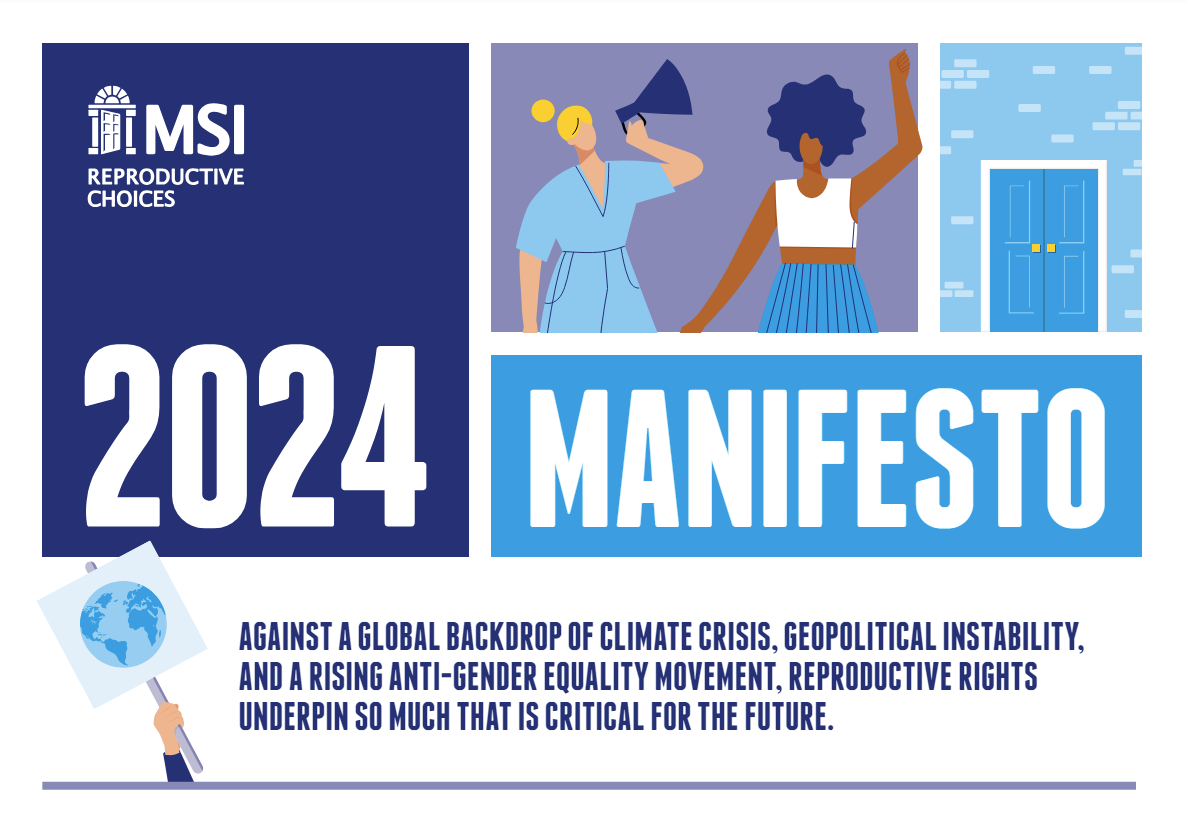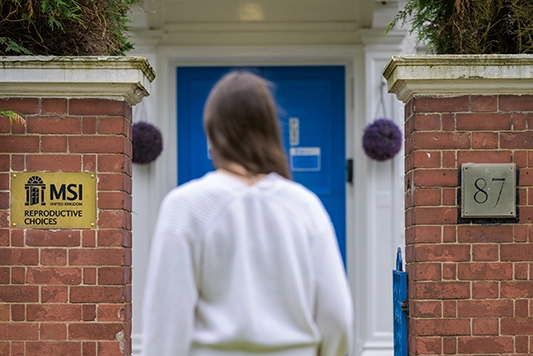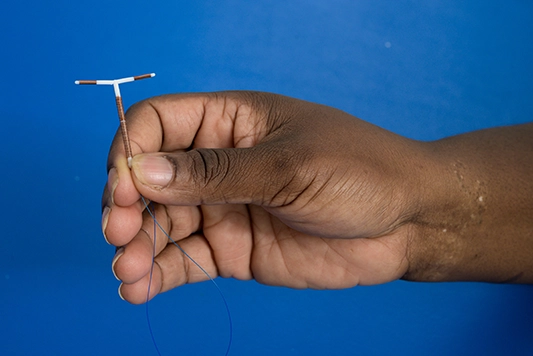There is a general election on 4 July 2024. As people across the country decide how to vote, we explore what good policymaking would look like in the areas of sexual and reproductive healthcare, abortion, and criminal justice, rising anti-choice extremism and gender equality.
Read our manifesto here: MSI Reproductive Choices 2024 Manifesto

Rising extremism and the weaponization of women’s choices
Around the world, anti-abortion groups are mobilising. Emboldened by the reversal of Roe v Wade in the United States and the rising so-called ‘anti-gender’ movement in the US and Europe, anti-choice activists have reportedly doubled their UK spend to nearly £1million in the last year.
Despite 9 in 10 people in the UK being pro-choice, anti-abortion groups are convinced they have a chance to roll back rights. We’ve seen a spike in hostile anti-choice activity outside our clinics. Large groups gather outside our doorsteps to harass and intimidate women and frontline healthcare workers. They have been known to bring megaphones, hold up scaremongering signs, share misleading or false medical claims, and sometimes film or take photos.
Abortion clinic harassment and Safe Access Zones
The good news is that the previous Parliament already passed legislation to introduce Safe Access Zones (also known as ‘buffer zones’) which protects all clinics and hospitals providing abortion in England and Wales. This was signed into law in May 2023.
The bad news is that the legislation which introduces Safe Access Zones (Section 9 of the Public Order Act) hasn’t been ‘commenced’ by the Home Office and therefore remains unenforceable. The outgoing government had begun to develop implementation guidance, which in our view is not necessary as the legislation is very clear and was scrutinised in detail by both the House of Commons and the House of Lords. The first draft of the guidance had been put out to consultation before the election was called, giving stakeholders the opportunity to submit feedback. MSI Reproductive Choices UK was among the many respondents to express serious concerns over the proposed guidance, which created loopholes in the law, and was at odds with what elected MPs across all major parties voted for.
An incoming government, regardless of which party wins the election, could implement Safe Access Zones in its first 100 days, sending a signal to anti-choice groups here and abroad that the UK will not stand by as a small but vocal minority uses Texas-style tactics to intimidate and bully women out of accessing healthcare. Similar zones now exist in Northern Ireland and Scotland, leaving only England and Wales unprotected from abortion clinic harassment.
Influencing MPs
Anti-choice activists don’t limit themselves to abortion clinic harassment. Campaigns backed by anti-choice groups have been scaremongering to policymakers, journalists, and the public about the safe, effective, and popular telemedicine abortion service, with an amendment to the Criminal Justice Bill before the election seeking to ban the service entirely, despite it being clinical best practice to offer telemedicine, and despite over 65% of women preferring home care.
We’ve also seen attempts to weaponize the ageing population as a justification for turning back the clock on gender equality.
There are many reasons why people, on average, are having fewer children than previous generations. The ageing population requires a thoughtful policy response, centred on understanding and respecting individual choices. Although there’s rarely one isolated reason why somebody has an abortion, we know that the cost-of-living crisis is playing a bigger role in those decisions. The abortion and vasectomy rates are rising as more people choose to have fewer children, or no children. As a pro-choice organisation, we strongly support the right to become a parent for those who want to do so, and it should never be the case that people are unable to fulfil their dream of having children due to financial pressures. Although out of our own advocacy scope as a medical provider, we welcome policies which address these challenges, such as childcare reforms. But the measure of success for these policies should never be a change in the abortion rate or a change in the birth rate. There is no right or wrong number of births, just as there is no right or wrong number of abortion procedures.
Tactics and truth
We encourage all new MPs to scrutinise any emails, briefings, or petitions they receive on abortion or gender equality issues very carefully as these are often coordinated by well-funded campaigners with an anti-abortion, anti-equality agenda. Misinformation has been rampant, especially online, while pro-choice MPs have faced targeted, persistent campaigns in their constituencies. The best place to get information you can trust about abortion, contraception, and vasectomy is from healthcare providers or medical bodies like the Royal College of Obstetricians and Gynaecologists (RCOG), the Faculty of Sexual and Reproductive Health (FSRH), or from the NHS.
Pro-choice future
Despite these tactics, there has been tremendous progress in abortion rights during the last Parliament. MPs across all major parties voted to make telemedicine permanently legal, to introduce Safe Access Zones (protecting abortion clinics from harassment), and to decriminalise abortion in Northern Ireland.
But we can’t be complacent. Anti-choice groups are gearing up for attack. Whether it’s by chipping away at time limits (against all clinical evidence), scaremongering about the safe, effective, popular telemedicine service, or harassing people outside our clinics, we know they don’t plan on giving up any time soon.
But neither will we.
To read our full policy recommendations on rising extremism, read our manifesto here.
Read more about our post-election policy vision
Visit the pages below to read more about our 2024 manifesto and the main policy changes we will advocate for during the next Parliament.

2024 Manifesto
Read and download our 2024 Manifesto: our post-election policy vision.

Abortion and Criminal Justice
Read our blog on policy reforms for abortion law and criminal justice.

Policy reforms for SRH
Read our blog on positive policy reforms for sexual and reproductive healthcare in England.











































